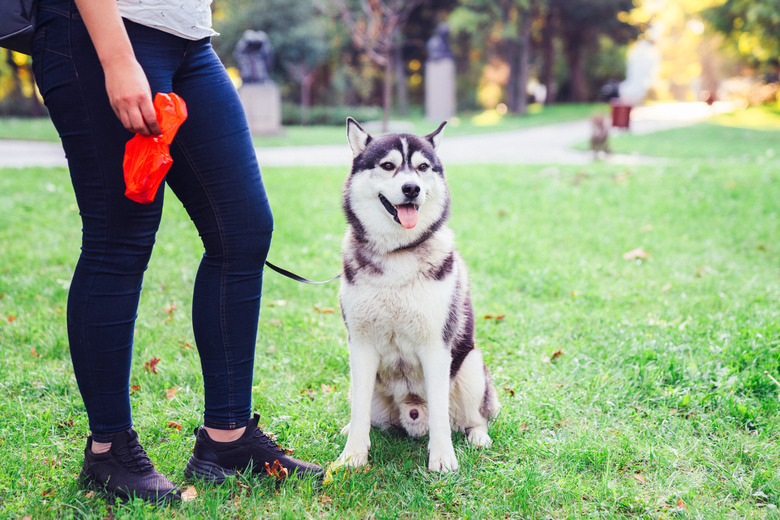Why Don't Some People Pick Up Their Dog's Poop?
Steaming dog poop on the sidewalk right in front of your house is enough to drive you mad. And yet, not picking up dog poop can be a very common occurrence no matter where you live. In big cities and small towns, at the dog park and your local beach, pet owners are sometimes lax when it comes to bagging and removing animal feces. In order to safeguard your neighborhood, as well as the health of other dogs and animals in your area, it's critical to pick up the poop. As always, if you have questions about dog feces, its consistency, or the gastrointestinal health of your pet, you can ask your vet.
Why you should pick up the poop
Why you should pick up the poop
If you need any convincing at all, here are the top reasons why removing that steaming dog poop from your property is an important health and safety matter:
- Poop is toxic. None other than the Environmental Protection Agency has deemed dog waste to be a type of pollutant on par with some of the worst offenders, including oil spills, herbicides, insecticides, and the salty byproduct from some irrigation systems.
- Poop carries parasites. Dog feces contain parasites, which are organisms that live on or inside a host, and these substances can be transmitted from animals to people. Some of the more common parasites found in dog poop are roundworms, hookworms, and whipworms. These intestinal parasites can attack human organs and cause diarrhea, vomiting, or a painful rash.
- Poop hurts other dogs. While poop on the ground is bad enough for people who come in contact with it, it's also problematic for other canines. Parvovirus, for example, can be passed along in the stool of an infected dog, leading to vomiting, lethargy, fever, loss of appetite, and bloody diarrhea. Contact with this virus may even be life-threatening.
Dog feces and the environment
Dog feces and the environment
If you care about Mother Earth and the water supply on this planet, you'll always pick up the poop from your dog, as well as any errant piles you spy during your daily outings. Certain pathogens and other substances in dog poop can get into soil, which affects plants and wildlife. And excess nitrogen and phosphorus found in animal feces can prompt algae and weeds to grow out of control, hurting creatures in the water and making swimming and boating untenable. And when poop isn't scooped, it can wash into our water system and pollute streams, lakes, and the ocean.
Best poop pick-up tips
Best poop pick-up tips
The biggest reasons for not picking up dog poop include not being aware of the damage it can cause and also sheer laziness on the part of dog owners. If your dog dumps a big one behind the bushes in the park, you might think no one will notice and that it could actually help the environment by acting as a type of fertilizer. Alas, this isn't the case with dog feces, as it can take up to a year to decompose and it has too much nitrogen in it to do grass and flowers any good.
- Be prepared. When you're out and about, always carry a supply of dog poop bags with you and wear a pair of gloves to complete the process of poop removal in a sanitary way.
- Try a scooper. You can also invest in a long-handled dog scooper for poop so you don't have to come in direct content with this waste.
- Find a trash can. Dispose of poop bags in a trash can since this way it shouldn't pollute the water system in your area.
- Keep clean. Lastly, always wash your hands well after walking your pet and picking up poop.
